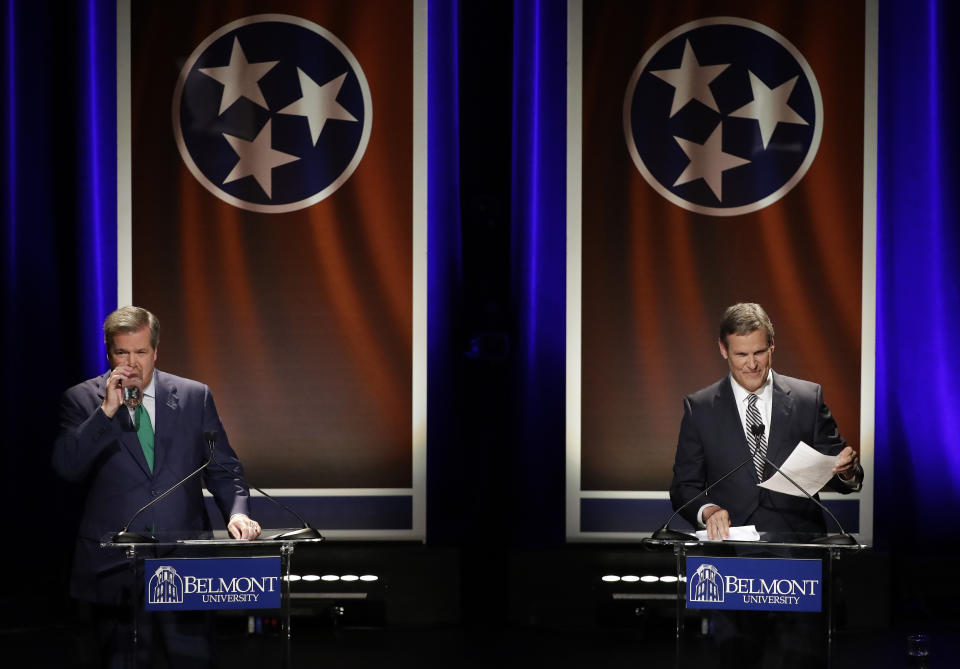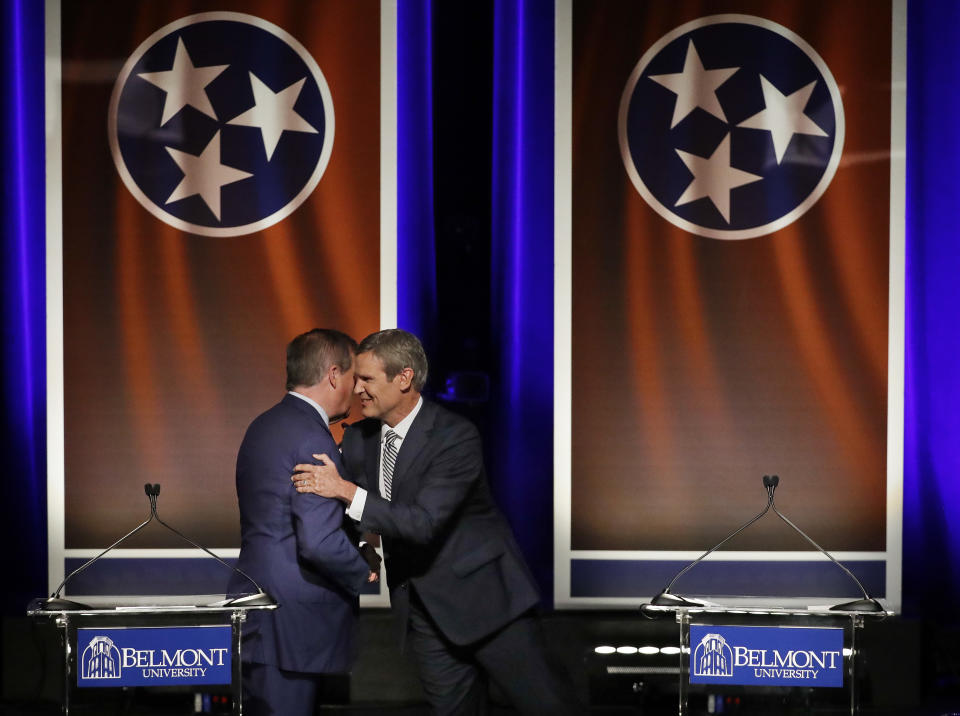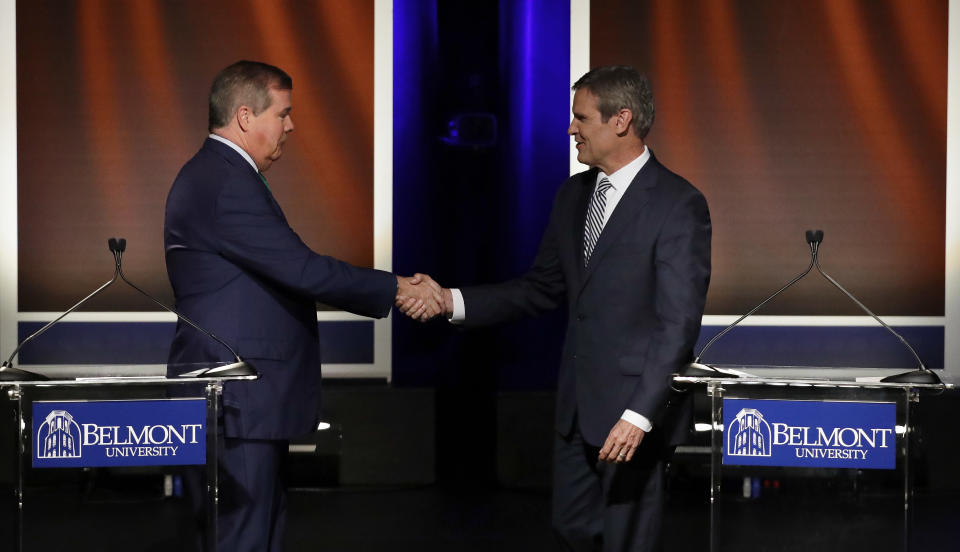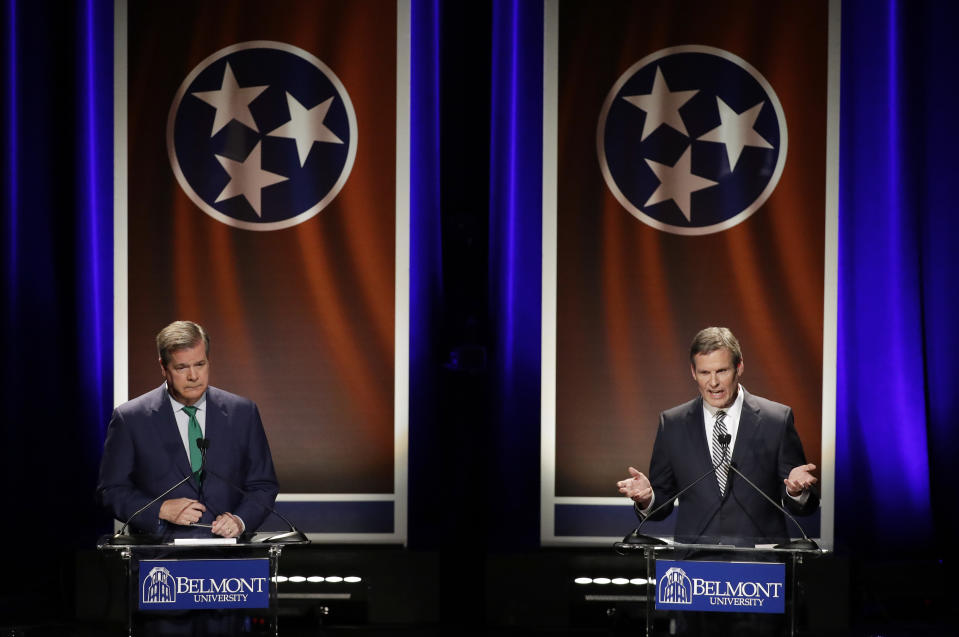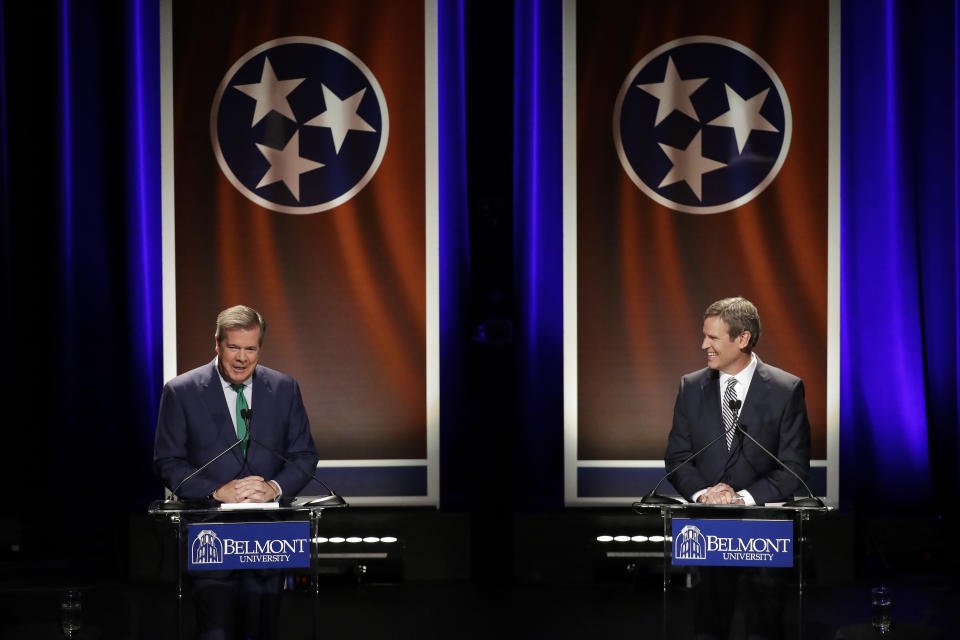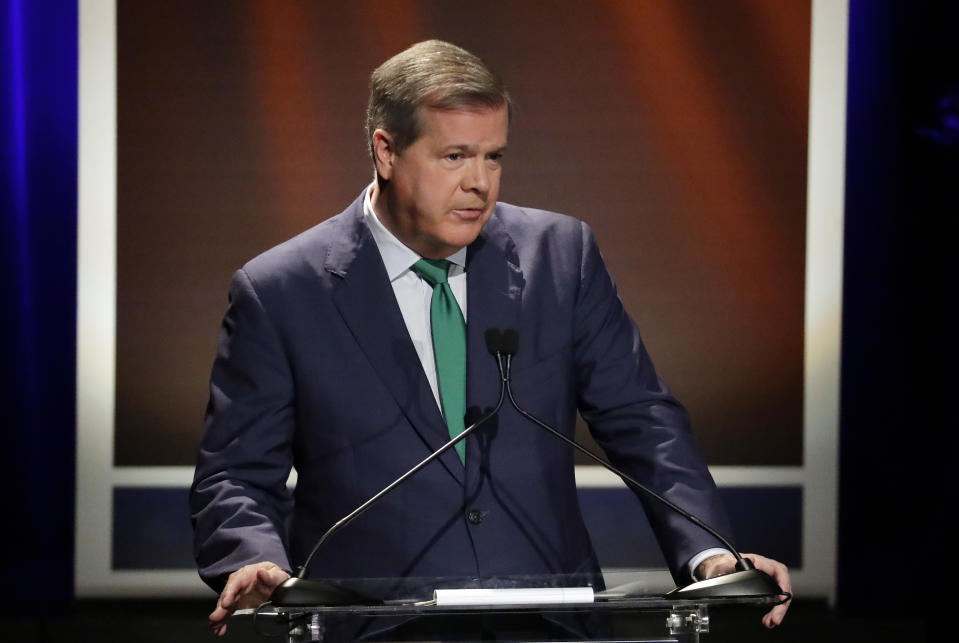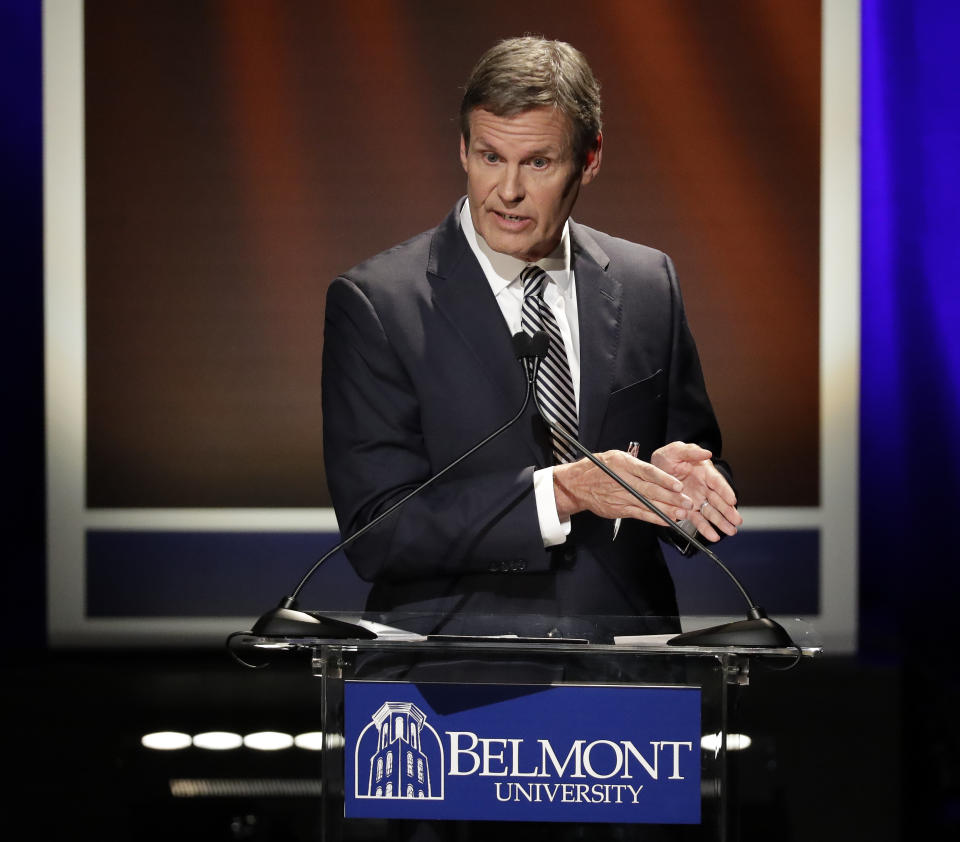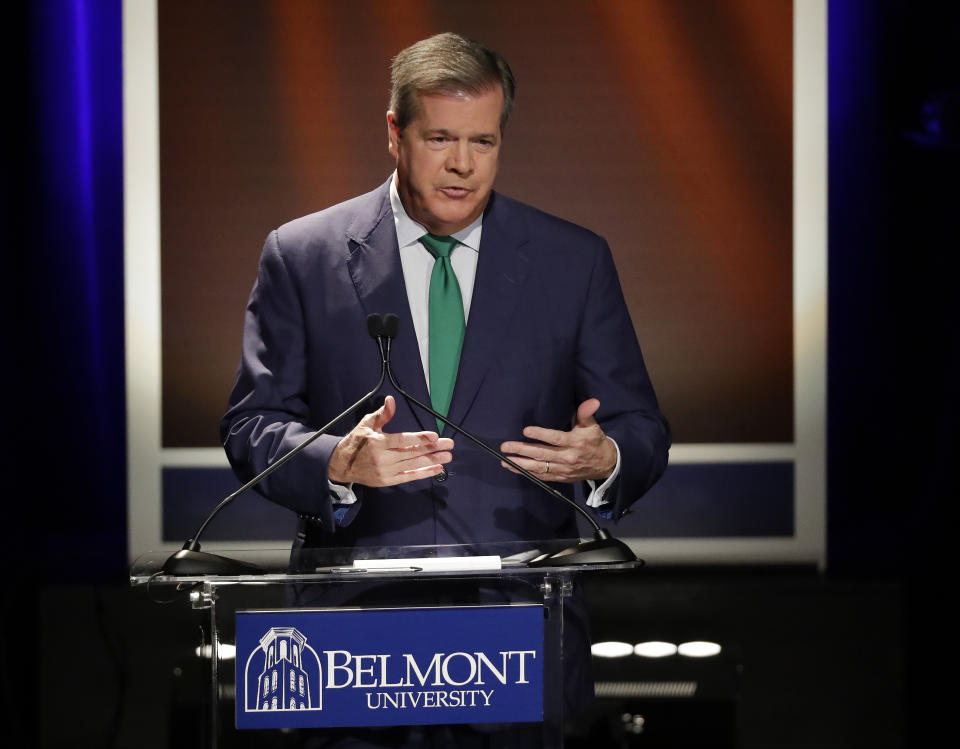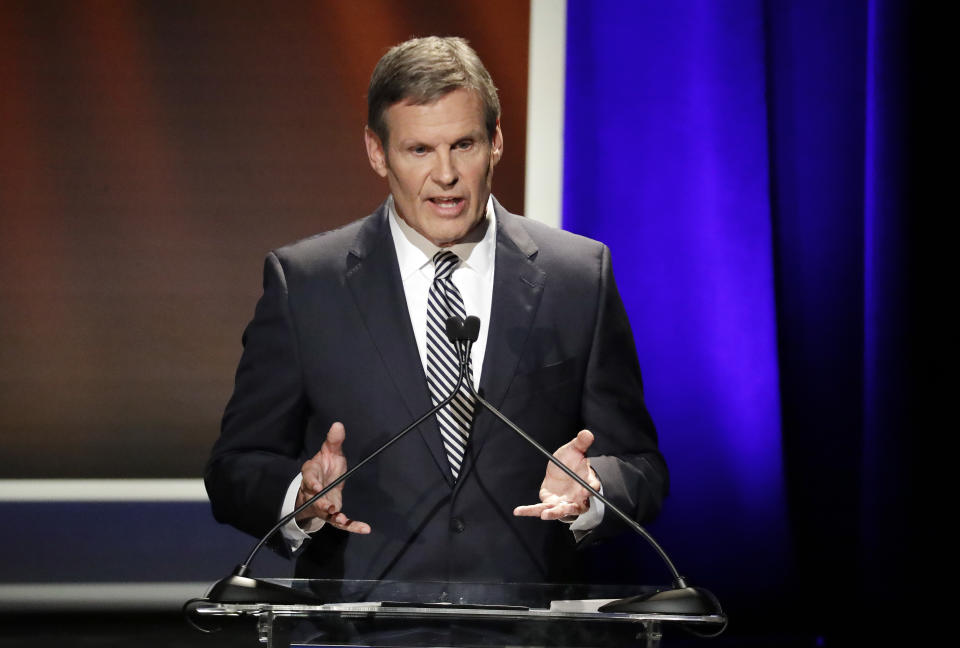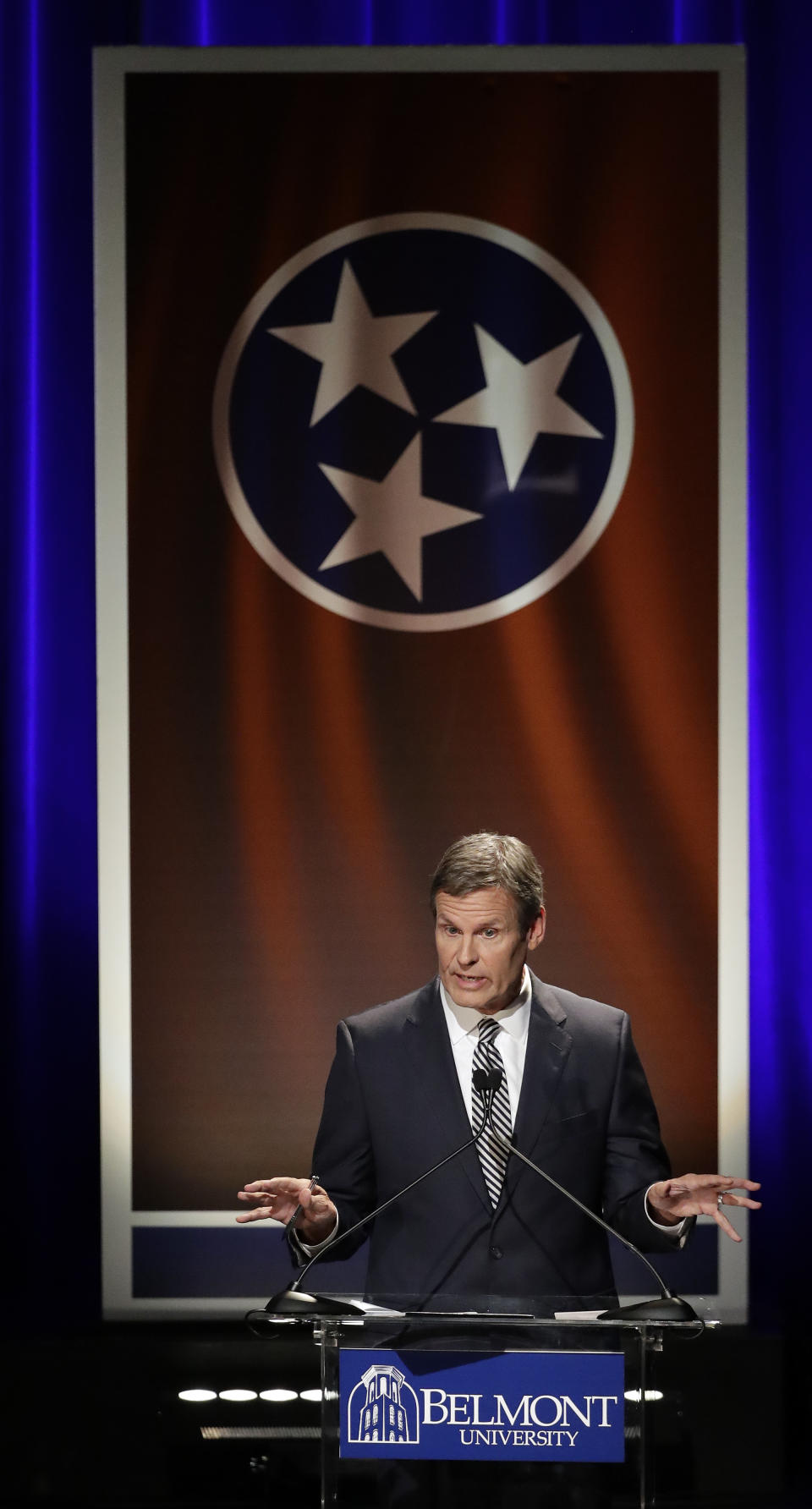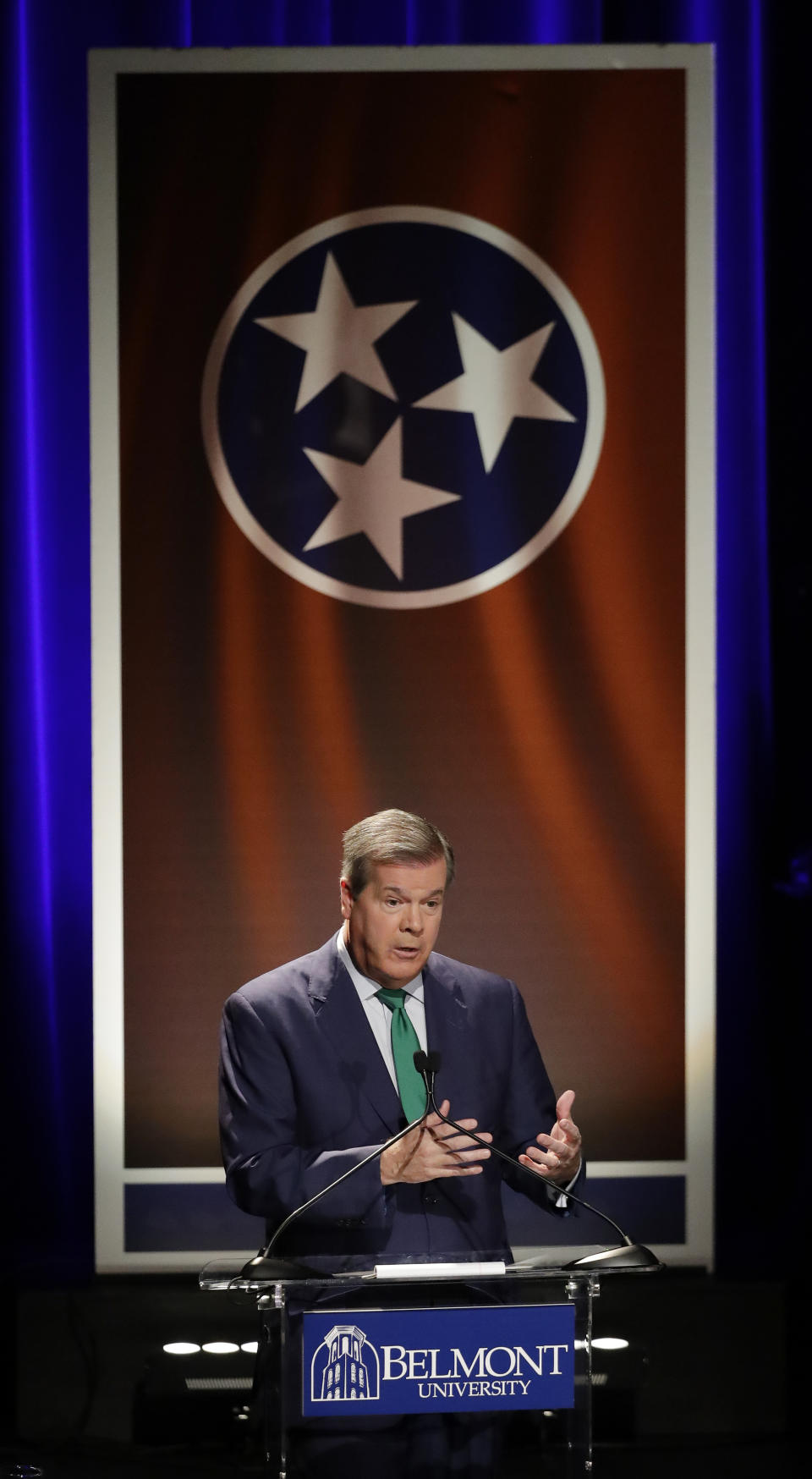Tennessee governor candidates remain cordial in final debate
NASHVILLE, Tenn. (AP) — No fireworks. No barbs. No swipes.
That was the tone of Tennessee's third and final gubernatorial debate on Thursday. But in a race that has struggled to find air up against Tennessee's competitive and tense U.S. Senate race, Republican Bill Lee and Democrat Karl Dean were content to praise each other's cordialness while talking about the state's most pressing issues — ranging from health care access, the death penalty and infrastructure funding.
"After three times doing this, we really clearly make the difference between us on the issues, I've expressed my opinion strongly and I've expressed them at a variety of places all along the state," Dean said to reporters after the event. "I don't look at this like I'm a relief pitcher coming in and I have to get three strikeouts ... This is about having a civil discussion on the issues and I feel good about my answers."
Likewise, Lee also praised Dean's positive tone during their times sharing the stage.
It was a stark contrast to just two days ago, when Republican U.S. Rep. Marsha Blackburn spent most of an hour going head-to-head with Democratic former Gov. Phil Bredesen in a high energy debate that saw multiple accusations from Blackburn while Bredesen pleaded for bipartisan unity.
Instead, Thursday's event repeated similar talking points the gubernatorial candidates had offered during the previous two debates over the past week.
Lee, a political newcomer to Tennessee, touted his business background with almost every answer as a way to show he had strong leadership experience despite not previously holding office.
Meanwhile, Dean — a former Nashville mayor — often pointed out his similarities to popular GOP Gov. Bill Haslam when outlining his policy positions as he fights to win over voters in a Republican-dominant state that has the Democrat trailing in polling.
Their biggest split remained on whether the state should expand Medicaid eligibility — as allowed under the Affordable Care Act — with Dean in support and Lee opposing.
Lee has promised to work to fix the state's the health care system, calling it a long-term project that may take 15-20 years, but said he would ultimately lobby the Tennessee Legislature to vote against Medicaid expansion should lawmakers ever get close to doing so. Dean countered he has yet to hear a detailed alternative plan that would offer the same benefits as Medicaid expansion.
Dean also said he was in favor of funneling more money to Tennessee Bureau of Investigations so the agency could serve as an independent reviewer of police shootings, but did not specifically say where the new funding would come from or what would have to be cut in order to fund the new costs.
Lee said he favored TBI reviewing police shootings that resulted in a fatality, but said he worried that the agency didn't have enough money to cover every incident — repeating his resistance to raising taxes to cover new government costs.
Similarly, Dean said he would consider increasing the state's gas tax to help boost road funding while Lee said he would look for other revenue streams.
The two agreed that they would follow the law when it came to the state's death penalty and would not seek to repeal or immediately change it.
Tennessee's capital punishment has been in the national spotlight since death row inmate Edmund Zagorski requested to use the electric chair for his execution. Tennessee is just one of nine states to allow such execution methods.
"Unless there is a circumstance that the system has a failure in it, where some circumstantial evidence came up later, I wouldn't be willing to move toward replacing the system," Lee said.
